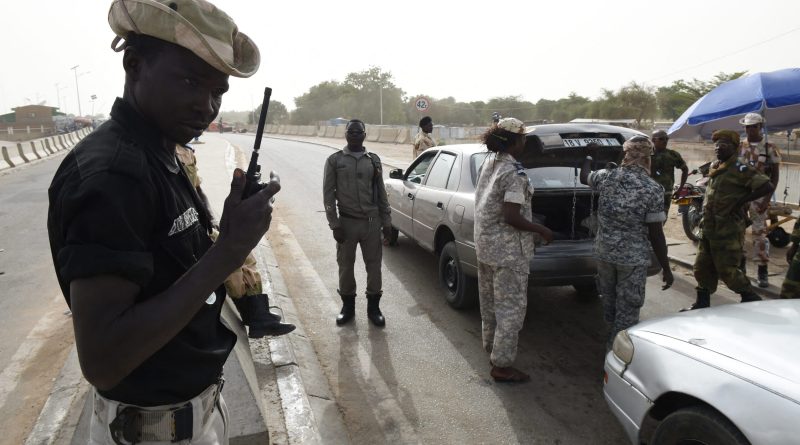Sudan’s civil war reignites illicit car trade into Chad
Sudan’s third civil war, which began in April 2023 between the rebel Rapid Support Forces (RSF) and Sudanese Armed Forces, has reignited the illicit cross-border trade in vehicles. At the onset of the conflict, significant looting occurred in Khartoum and other major cities, primarily perpetrated by RSF members.
Looters frequently targeted the residences of people who fled Khartoum, Wad Madani and other places in Sudan, mostly seizing gold jewellery and vehicles. Specific values on car looting are hard to come by, but the price of property and goods plundered from mid-April to mid-July 2023 was estimated at $40 billion.
Although Sudan has now become a source of stolen vehicles, car theft and cross-border smuggling in the Chad-Sudan border region is not new. In the 2010s, Sudanese border markets became centres for cars stolen by Seleka fighters from the Central African Republic and various armed factions from Libya. The pre-owned vehicles were transported into Sudan through Darfur and the Northern State.
Porous borders and limited law enforcement capabilities enable the criminal economy, a senior police officer in Chad told the ENACT organised crime project at the Institute for Security Studies. As the Sudan war rages on, it has fostered a burgeoning illegal economy that involves traffickers selling stolen vehicles to buyers in Chad for much less than their original value.
The cross-border smuggling has stoked resentment among some displaced Sudanese living in Chad, who believe Chadians are capitalising on their country’s misfortune.
Chad-Sudan cross-border area

While numerous actors are involved in this criminal enterprise – including smugglers, intermediaries, garage proprietors and other profiteers – RSF members have emerged as key players. Each time the RSF occupies a new location, looting occurs, with vehicles among the primary spoils of war. The stolen cars are transported to the border with Chad, where they are sold by RSF members.
A judge from Abéché in the Chadian province of Ouaddaï told ENACT that criminals disguised stolen vehicles and used counterfeit licence plates to facilitate their passage across the Chadian border.
This often occurs late at night when security checkpoints are either not operating or enforcement is less rigorous. Different criminal groups manage the transportation of the stolen vehicles into the interior, the judge said.
The theft and smuggling of cars not only exacerbate transnational crime, but also intersect with conflict, political instability and economic opportunism in the region. Looting often involves violence, including assaults on defenceless civilians in impoverished and wealthier regions to steal valuable assets like vehicles.
Civilians in these communities in Sudan have been arming themselves and mobilising to resist the rebel groups and carry out revenge attacks.
This development suggests an intensifying cycle of violence, and increases the likelihood of extended conflict. The surge of stolen vehicles into Chad is also disrupting local markets and eroding legitimate automobile trading.
While the pursuit of peace remains elusive in Sudan, neighbouring countries must not be complicit by serving as destinations for the proceeds of war. To effectively address the inflow of stolen vehicles, Chad can draw insights from South Sudan’s recent handling of a similar challenge.
When the conflict in Sudan started, South Sudan collaborated closely with Sudanese law enforcement agencies. A delegation of Sudanese traffic officers travelled to Juba equipped with the electronic records of stolen vehicles, enabling the South Sudanese police to identify and recover the cars.
Authorities also warned the public not to purchase smuggled vehicles, which helped raise awareness and reduce demand.
South Sudan went even further – prohibiting the registration of any Sudanese vehicle that lacked proper documentation, making it difficult for stolen cars to enter the legitimate market.
Chad could implement similar strategies by enhancing border security and formalising cooperation with Sudan through security agreements. Gaining access to Sudan’s vehicle registry would enable Chadian officials to identify and intercept stolen cars. Joint operations between the law enforcement and border authorities of the two countries would also be beneficial.
READ ALSO: NMA panel asks judge for more time to submit report on Nnamdi Kanu’s health status
The experience of South Sudan illustrates that even in times of conflict, robust policies and regional collaboration can significantly diminish cross-border criminal activities.
Oluwole Ojewale, ENACT Central Africa Organised Crime Observatory Coordinator, Institute for Security Studies (ISS) Dakar
ENACT is funded by the European Union and implemented by the Institute for Security Studies in partnership with INTERPOL and the Global Initiative against Transnational Organized Crime.
(This article was first published by ISS Today, a Premium Times syndication partner. We have their permission to republish).


